If you’re like most people, once you pour your last capful of laundry detergent into the washing machine and toss the empty plastic container into the trash, you probably don’t think much about that container anymore.
But Akeino Williams, who works at Island Green Living Association’s recycling program on St. John, does think about it.
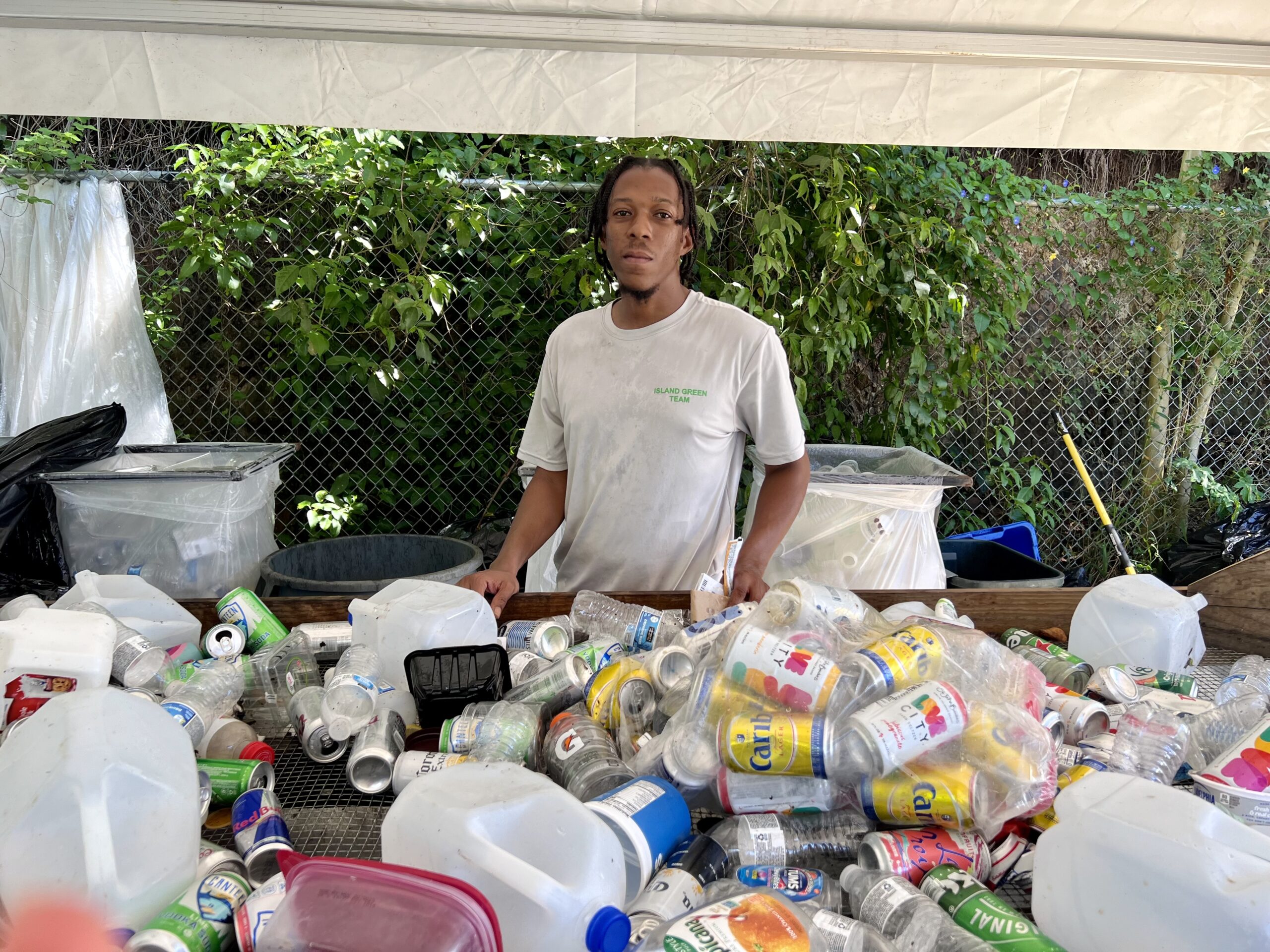
He’s one of the two employees whose job it is to sort the different types of plastic from truckloads of single-use products contributed by community members wanting a better future for their plastic waste.
Williams and colleague John Baker separate the three types of plastic now being collected at the Gifft Hill site: #1 PET (or PETE), such as a disposable water bottle; #2 HDPE, like that laundry detergent container; and #5 PP, often used for food containers.
Once the plastic objects have been sorted, colleague Jesse Crosby puts them in a compactor, wires up the compacted material into bales, and puts them in a trailer for shipment to PADNOS, a Midwest-based recycling company. PADNOS has formed a partnership with Island Green Living Association, the non-profit organization that oversees the recycling program adjacent Resource Depot.
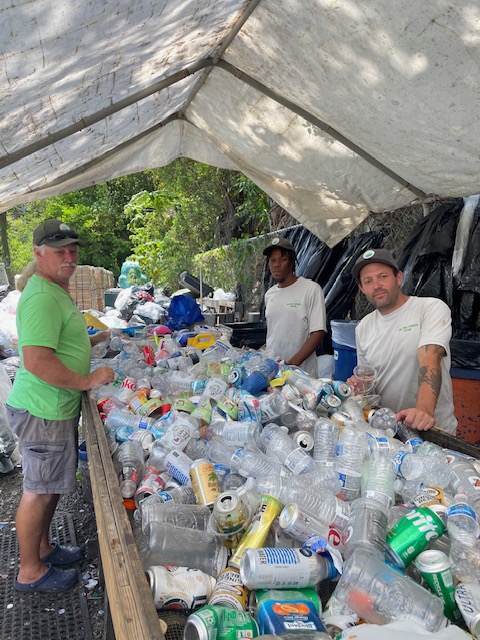
Sorting and baling waste products is not the kind of work that most people clamor to do, but Island Green pays its staff a living wage and offers benefits like health insurance.
However, nobody makes a profit. Depending on its type and market fluctuations, recycled plastic can be sold for between one cent and 30 cents per pound, according to Kelly McKinney, executive director of Island Green Living Association.
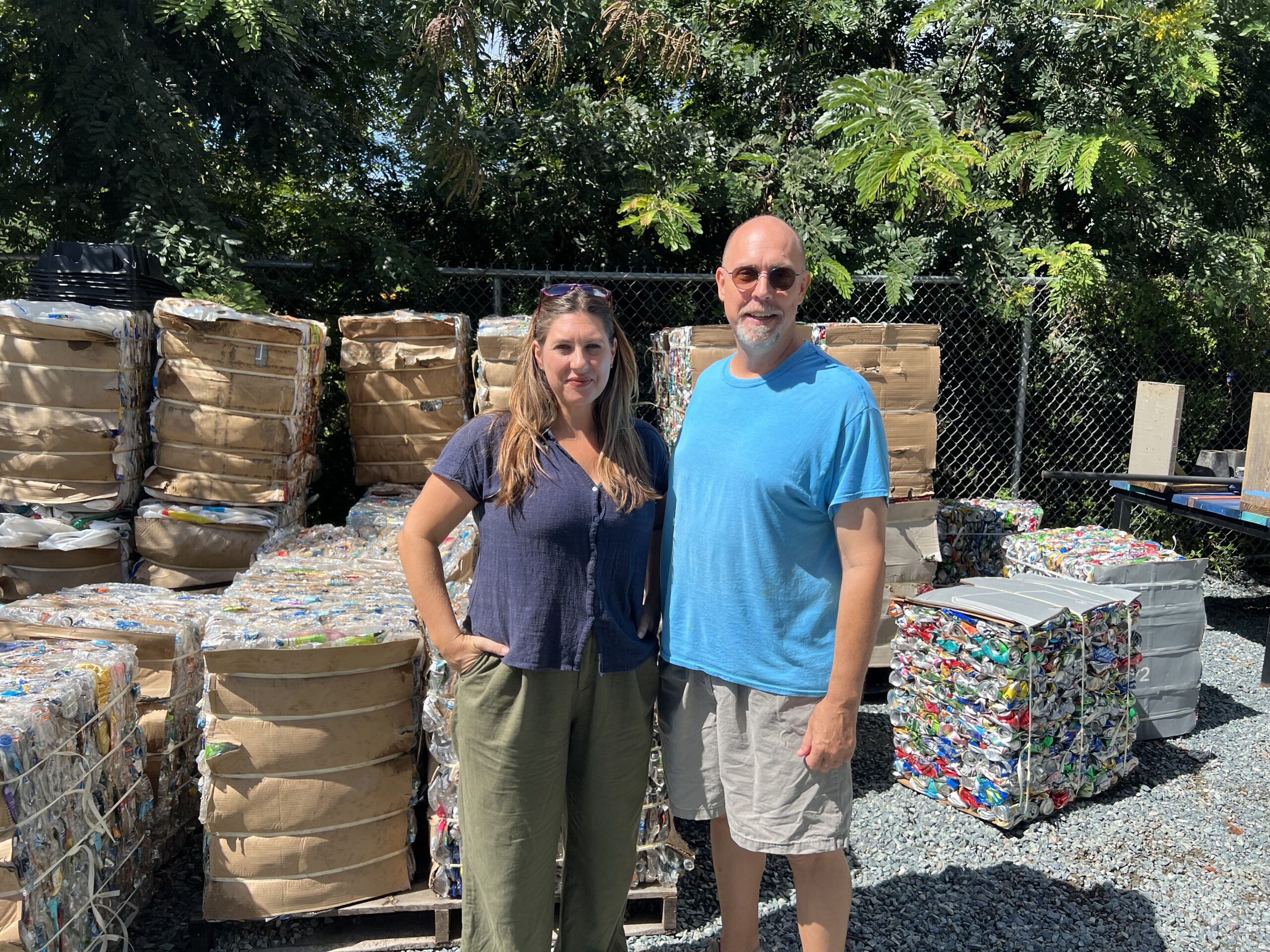
Kelly McKinney, executive director of the Island Green Living Association and Jay Bowers, recycling program manager, take a moment to pose at the Gifft Hill site. (Photo by Amy H. Roberts)
McKinney said it costs Island Green about $200 to produce a bale of recyclable material, and the sale of material doesn’t quite cover a third of the cost.
Clearly, this is not a sustainable business model, but Island Green is determined to continue its efforts. Why? For the simple reason that on an island like St. John, plastic that doesn’t get recycled can easily wind up in the ocean. (Walk almost any beach that isn’t regularly cleaned and you’ll see how much plastic debris washes up.)
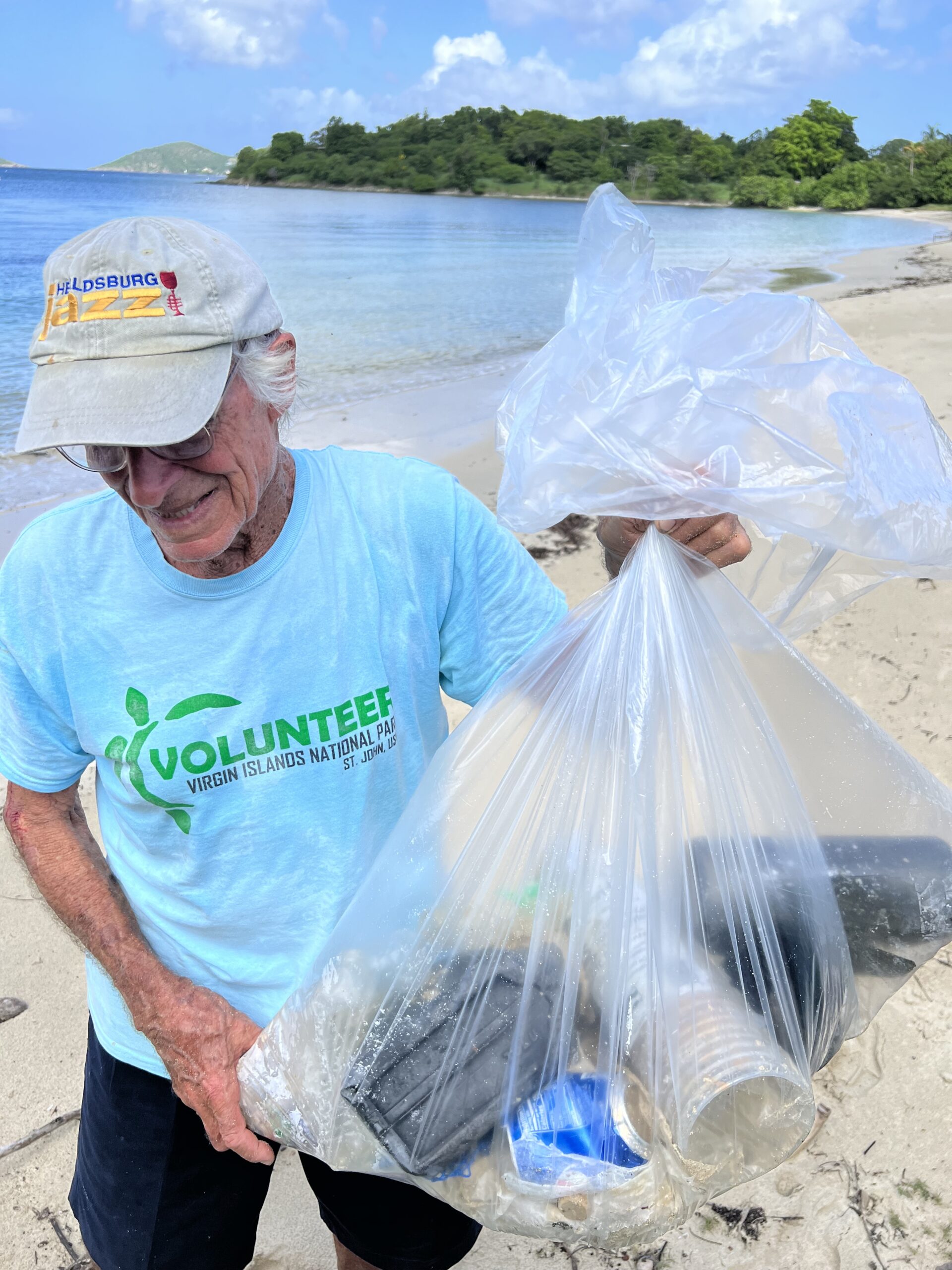
If they’re not recycled, plastic containers typically end up buried in the landfill where they may take decades, if not centuries, to decompose – if, in fact, they ever do.
“Plastics don’t really decompose,” said McKinney. She cites information published by the National Ocean Service.
“Unlike some other kinds of waste, plastic doesn’t decompose.” Instead, it breaks down into tiny particles called microplastics. “That means plastic can stick around indefinitely wreaking havoc on marine ecosystems,” their webpage states.
And as we are now learning, those microplastics are showing up in our bodies, and the potential health consequences are alarming.
Island Green’s recycling program is committed to continuing its efforts, but they need help. For this reason, they’ve kicked off a fundraiser from now through Nov. 15, America Recycles Day. Their goal is to raise $150,000, and they’re on their way with a $50,000 matching grant.
“I’d like the community to understand that we’re a charity, and if they use our program, they should consider donating funds – whatever they can afford,” said McKinney. “Where I come from in Austin, Texas, I paid a $10 a month waste recovery fee which was added to my utility bill.”
Donations can be made through their website http://islandgreenliving.org using a credit card or PayPal or through Venmo credit card or PayPal, or through Venmo (@Re_Source_Depot) or by using the full name: Island Green Living Association.
Although the Virgin Islands Waste Management Authority has tried for years to establish “tipping fees” for trash disposal, residents have largely remained exempt. Only businesses and trash haulers pay fees now.
“In the Virgin Islands, the money has to come from somewhere. No service comes for free. That’s why we’re calling on community members,” McKinney said.
The Government of the British Virgin Islands charges visitors a $10 fee to sustain non-profit conservation and environmental services. McKinney said a similar policy in the U.S. Virgin Islands would go a long way to implement and support recycling programs throughout the territory.
Island Green began recycling plastics in February 2022; since then, it’s sent 60,000 lbs. of ocean-bound generated waste. Every pound is tracked and certified so that PADNOS can fetch a higher price when they sell the processed raw material to end users; as a bonus, community members can feel confident that their material will be recycled into another product.
The amount of plastic the recycling program handles is nothing compared to the nearly three million aluminum cans that they’ve recycled since 2014 when that program began.
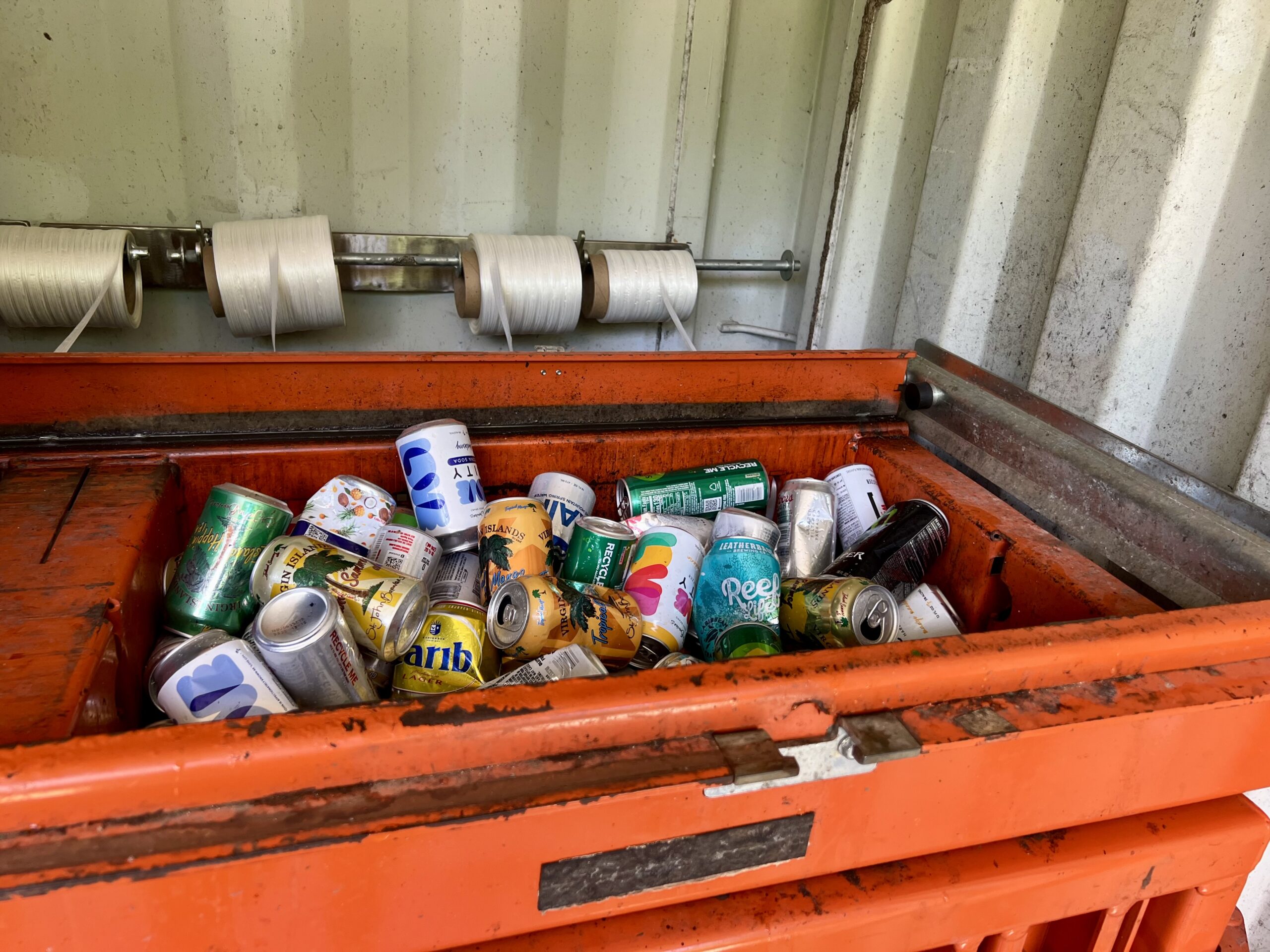
Community members typically drop off their bags of cans and plastics, but staff members also make daily rounds to 16 sites, including public waste bins. Restaurants and resorts pay a fee for pick-up.
The Island Green Living Association acquired a lease from the V.I. government to operate the ReSource Depot at their current site on Gifft Hill in 2017. In 2019, they began converting the shell of a warehouse into a popular thrift store that sells gently used clothing, housewares, construction materials and an array of useful items like crutches and snorkel gear. McKinney said they’ve diverted more than 800,000 lbs. of material from the waste stream since they opened.
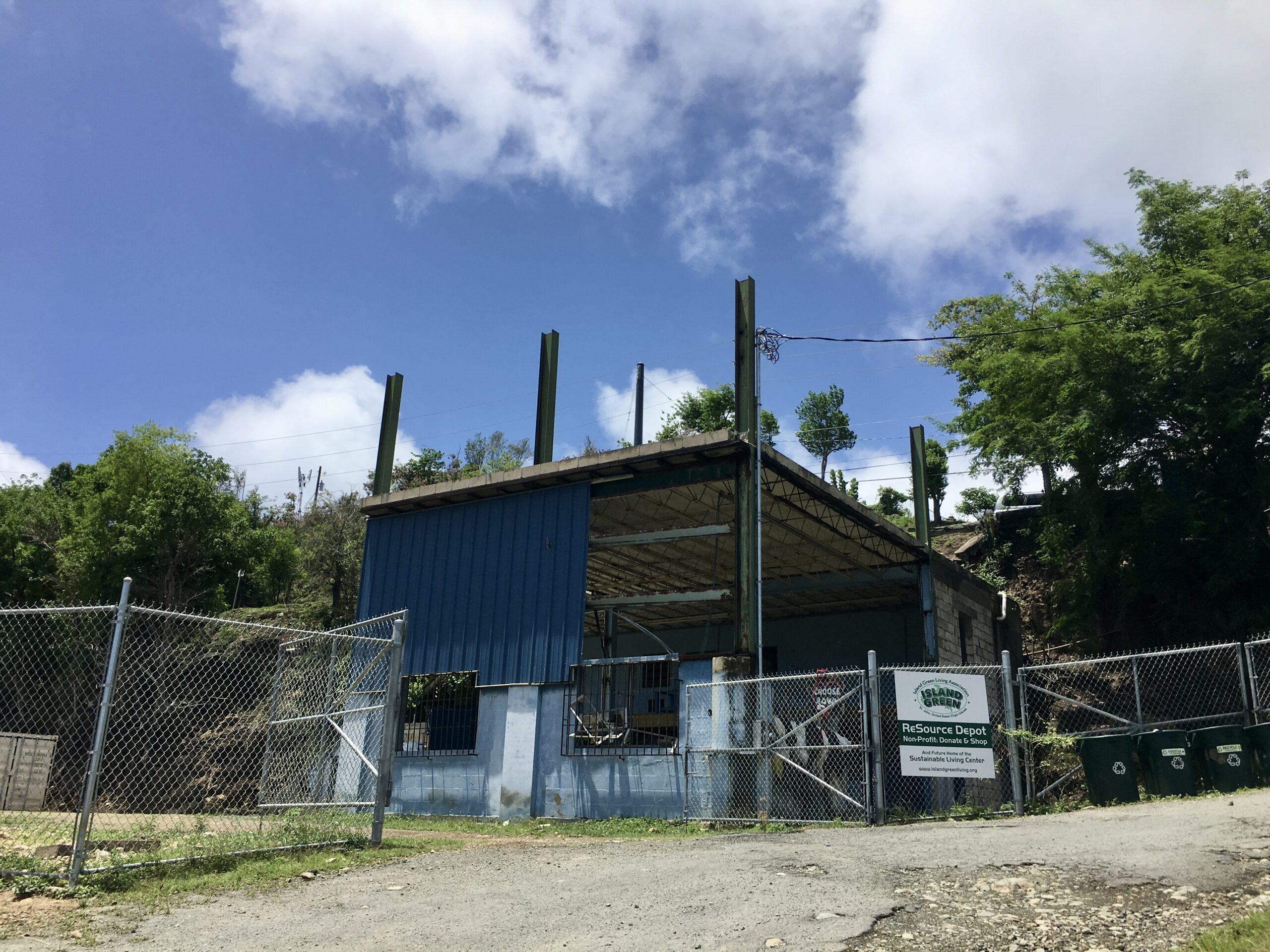
The shop is open Wednesdays through Saturdays from 9 a.m. to 2 p.m.
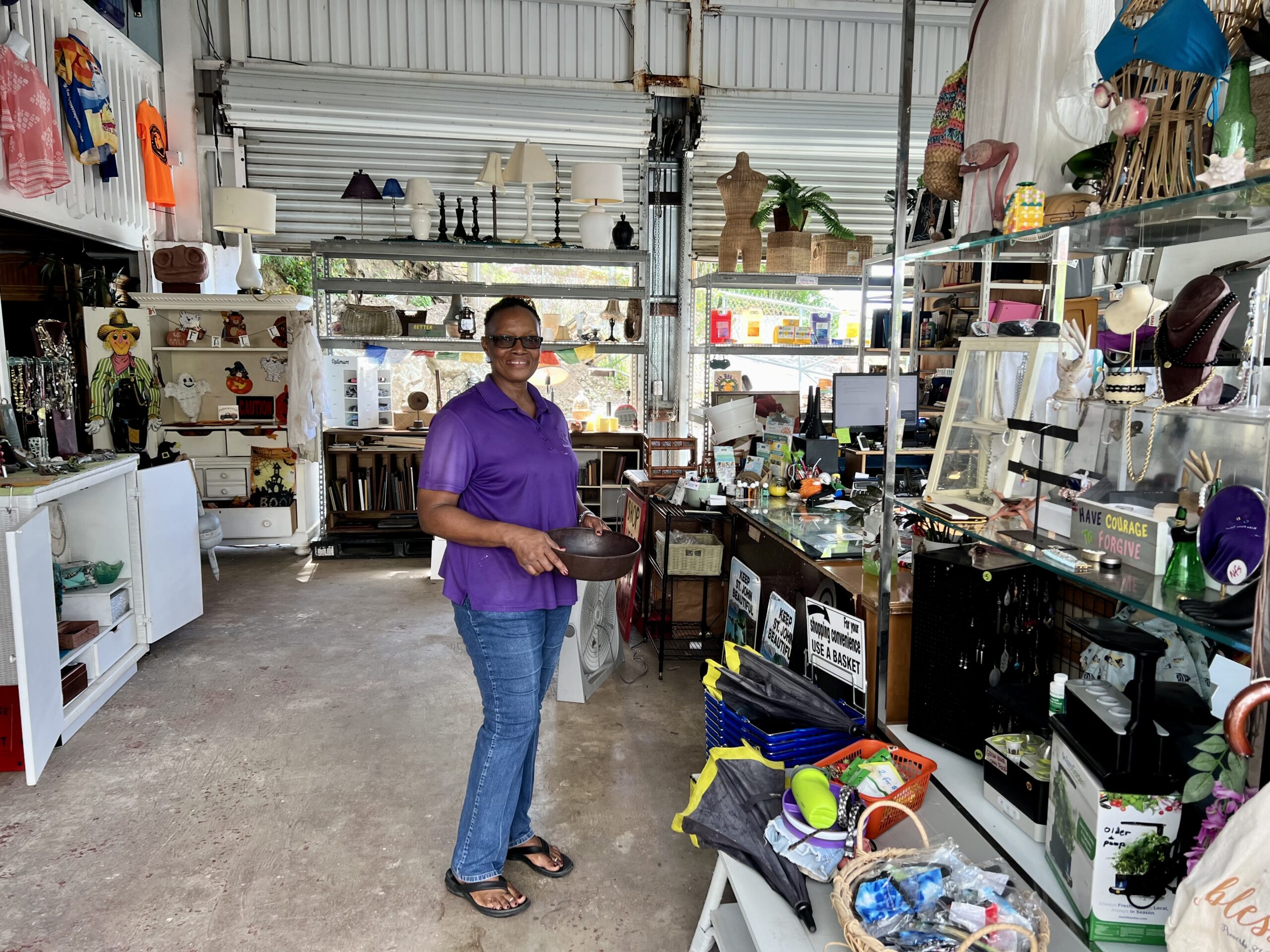
In the last few weeks, the staff has upgraded their recycling center. “We poured a new concrete pad and acquired two new tents, so we can move everything out of the mud and operate more efficiently,” said Jay Bowers, recycling program manager.
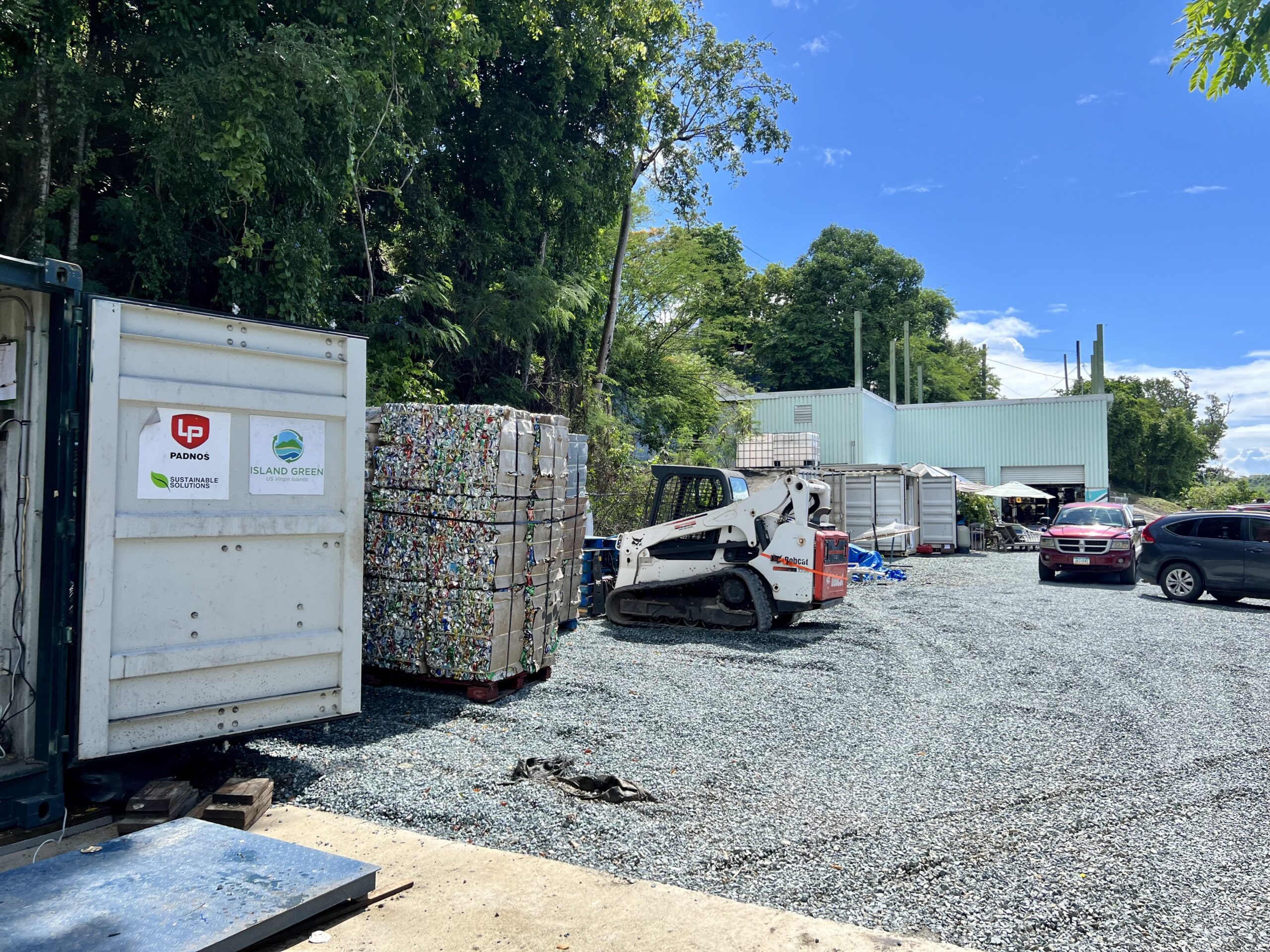
To make their jobs easier, Bowers asks the public to remove the caps (which can still be recycled) and rinse containers before dropping off items. And please dispose of other household waste separately at the V.I. Waste Management Authority bin sites; no one sorting out items at the recycling center wants to deal with a dirty diaper.
Editor’s Note: A previous version of this story contained incorrect information about the organizations involved. The Source apologizes for any inconvenience this may have caused.


